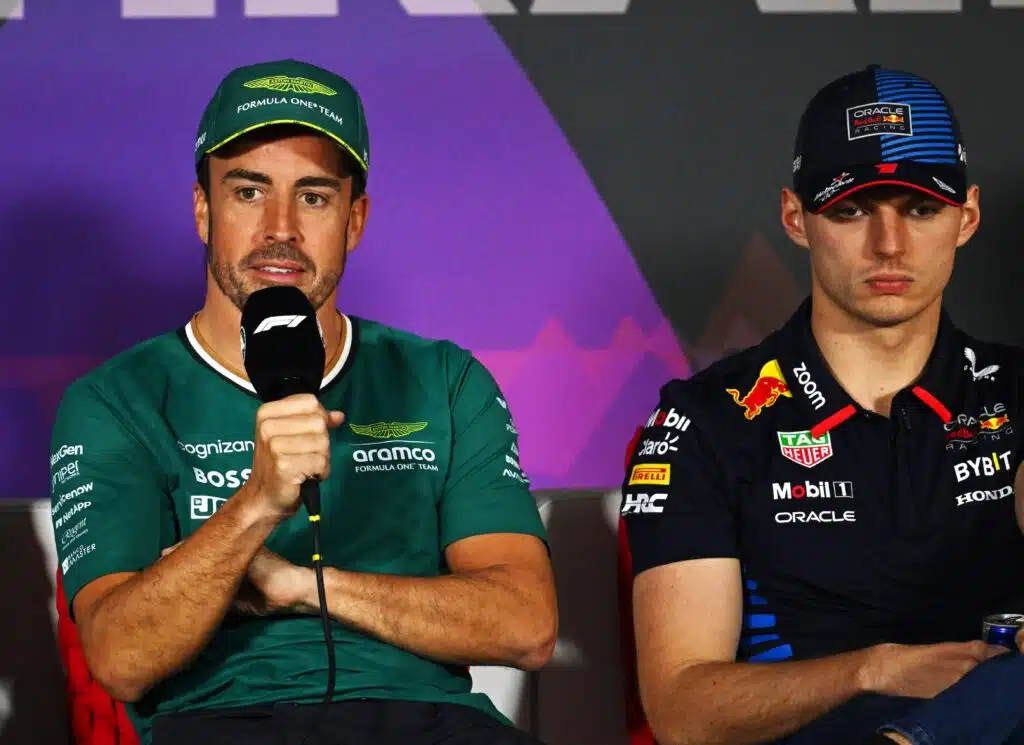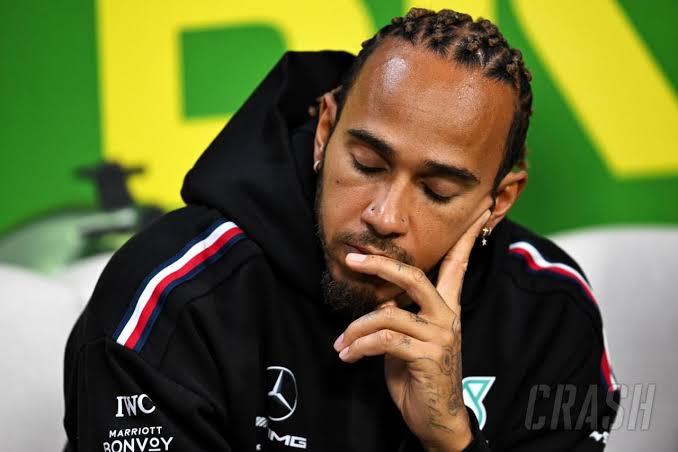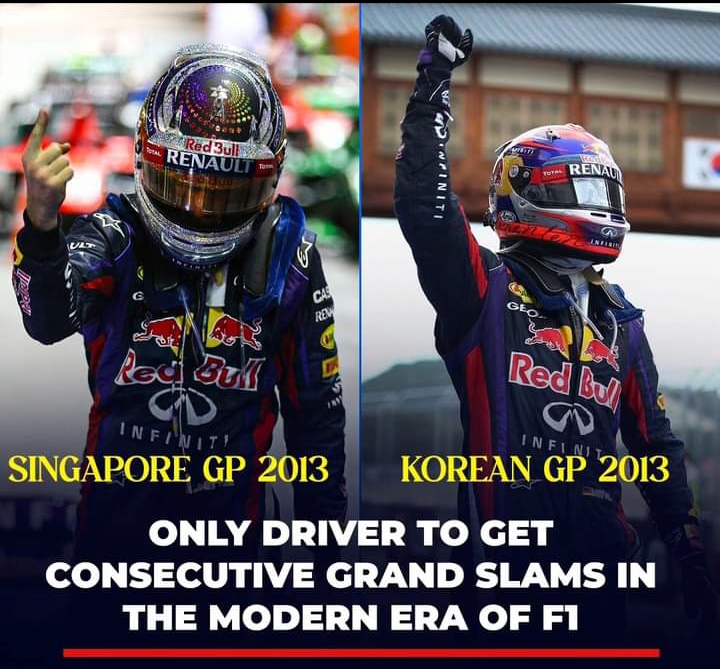In a surprising twist in the ongoing debate surrounding swearing in Formula 1, Spanish champion Fernando Alonso has emerged as a distinct voice, aligning himself with FIA president Mohammed Ben Sulayem rather than reigning world champion Max Verstappen. This marks a notable departure from the prevailing stance among drivers, who have largely rallied behind Verstappen in the wake of the recent controversy.
The uproar began when Verstappen found himself at odds with the FIA, leading to a wave of support from fellow competitors and former drivers. Lewis Hamilton, a long-time rival of Verstappen, was among the first to urge him to embrace civil disobedience and forgo any community service obligations handed down by the governing body. Following Hamilton’s lead, other prominent figures such as Nico Rosberg, Ralf Schumacher, and Jos Verstappen voiced their criticisms of the FIA, creating a chorus of solidarity with Verstappen’s cause. Yet, amidst this chorus, Alonso took a moment to share a more nuanced perspective.
At a recent event in India, organized by Cognizant, one of Aston Martin’s sponsors, Alonso addressed the significance of conduct for champions in the sport. He articulated a compelling argument about the responsibilities that come with being in the public eye, emphasizing that drivers must recognize their influence as role models for young fans. Alonso stated, “There are moments when you don’t feel like training or preparing for the next race… You have to do it anyway! You have to be responsible to yourself, to the fans, and to all those people who believe in you.” His words resonated with the gravity of the situation, highlighting that being a driver extends beyond racing; it involves a commitment to inspire and uplift those who look up to them.
Alonso’s call for self-discipline in communication is particularly pertinent in today’s climate, where social media and instant communication amplify every word spoken by public figures. He urged drivers to “control themselves” and to maintain a sense of political correctness, especially when their words can have far-reaching implications. “At this level, you realize that many people look up to you,” he said, underscoring the need for athletes to embody the virtues they espouse, both in and out of the cockpit.
The Spanish driver’s perspective sheds light on a vital aspect of sportsmanship that often gets overshadowed by the competitive nature of the sport. “If you are a driver or someone who has a public function, you just have to behave well,” Alonso insisted. This sentiment resonates deeply in a world where fans are eager for heroes, and athletes hold the power to shape the values of the next generation. He further articulated that the admiration fans have for drivers brings with it a set of expectations. “The fans have to believe in you,” he emphasized, recalling how supporters inspire drivers to keep pushing their limits. He reminded everyone that athletes are not just competitors; they are figures of inspiration, embodying resilience and determination in the eyes of their fans.
By advocating for a more respectful approach to communication, Alonso is not just standing against swearing but is also calling for a deeper awareness of the consequences of one’s words. He highlighted the importance of the message athletes send, recognizing that their actions and words can influence countless individuals across the globe. “They tell you, ‘you are my inspiration, you never give up, you are a fighter’,” he noted, emphasizing how vital it is for drivers to uphold the values that fans admire.
In a sport that thrives on passion and intensity, Alonso’s voice adds a refreshing layer of responsibility and integrity to the discourse. His willingness to challenge the prevailing sentiment while still acknowledging the pressures faced by drivers offers a compelling counter-narrative to the ongoing discussions surrounding behavior in Formula 1. As the debate continues, Alonso’s perspective serves as a reminder that the world of motorsport is not just about speed and competition; it’s also about the impact drivers have on society as a whole.
Ultimately, Alonso’s remarks invite reflection on what it truly means to be a champion in Formula 1. It’s not just about winning races and collecting trophies; it’s about leading by example and recognizing the platform that comes with success. As the spotlight shines brightly on these elite athletes, their responsibility to inspire the next generation of fans remains paramount. Fernando Alonso’s stance may have set him apart from his peers, but it also establishes a critical dialogue about the intersection of professionalism, public image, and the role of athletes as leaders. In a sport driven by performance, it’s clear that the words spoken and the behavior exhibited off the track are just as crucial as the victories claimed on it.
Tension in F1: Alonso Scolds Verstappen for Swearing




